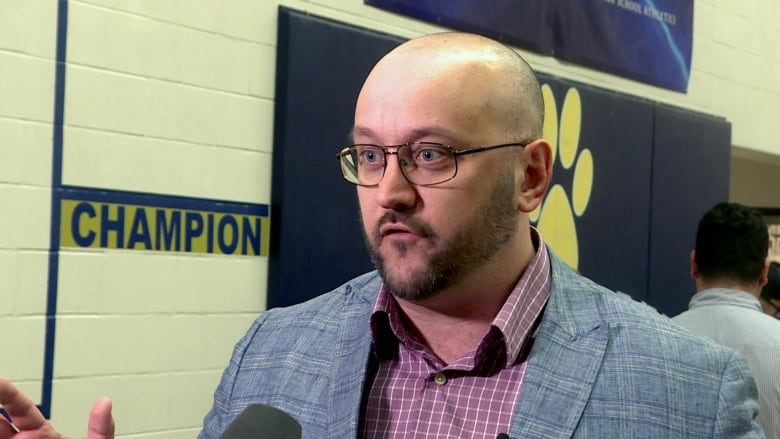Wexit party granted eligibility for next federal election
Group plans to have candidates in 4 provinces after Elections Canada gave the go-ahead Friday

Voters could be allowed to cast their ballot for the western separatist Wexit Canada party in the next federal election.
Elections Canada granted eligibility to the party Friday, which will allow Wexit to get its party name on the ballot and issue tax receipts for political contributions.
Speaking at a rally in Edmonton held at the Alberta legislature on Saturday, party leader Peter Downing said the decision concluded a year-long effort to establish a legitimate political entity.
"[The Reform Party's] slogan was 'The West Wants In,'" Downing said. "Our slogan is, 'The West Wants Out.'"
- Wexit party to run federal and provincial candidates across Western Canada
- ANALYSIS | Anger, anxiety and the 'deep story' behind Wexit
The party says it plans to nominate 104 candidates to federal ridings in four provinces: Alberta, British Columbia, Saskatchewan and Manitoba.
It also plans to compete in every western byelection between now and the next general election.
"With the expected seats we're going to win in Alberta, British Columbia, Saskatchewan and Manitoba, the Conservative Party of Canada will never govern again," Downing said.

Elections Canada says Wexit Canada will be officially registered when a returning officer in an election or byelection confirms Wexit's first endorsed candidate.
The party's stated goal is to push for a referendum that would withdraw Alberta from Confederation. From there, the party plans to establish its own defence force, police and currency, and elect a president of Alberta.
The group also hopes to run candidates at the provincial level in B.C., Alberta, Saskatchewan and Manitoba.
Questions remain
Political science professor Duane Bratt said, despite the party moving forward, a number of questions remain.
"Who is going to be the leader of this party?" he said. "[Downing] seems to be the front person here. But I'm not seeing a whole lot of people clamouring. He doesn't have the pedigree that a Preston Manning had, or a Lucien Bouchard when he created the Bloc Québécois."
Downing told CBC News on Saturday he would remain leader going into the next federal election.
"I have a mandate from our organization. I was selected as leader before the election," he said. "So I have a mandate to lead it into the first general election."
In the 2015 federal election, Downing ran with the Christian Heritage Party and told CBC in 2019 he's since been involved with federal Conservative Party boards and as a campaign manager with the former provincial Wildrose Party.
Before that, he was an RCMP officer who was suspended for uttering threats against his ex-wife. Downing has said the judge made a mistake in finding against him for uttering threats and said he left the force with a clean record.
Bratt has doubts voters will opt for candidates from this new party.
"What sort of candidates are they going to acquire? And are people going to desert the Conservative Party for this Wexit party?" Bratt said. "I don't think that's going to be the case here. I don't think people in Western Canada are upset with the Conservatives. Therefore, I think the Wexit party, I'm sure they may run candidates and do as well as the People's Party [of Canada] did."
In the 2019 election, the People's Party of Canada, headed by Maxime Bernier, tallied 1.6 per cent of the national vote and did not win any seats.

For his part, Alberta Premier Jason Kenney has rejected the idea of separating from Canada, instead forming a "fair deal" panel that would look at ways to increase Alberta's autonomy.
A number of platforms championed by the Wexit party — including establishing an Alberta police force and a Alberta-based pension plan — are currently being studied by the Fair Deal panel.
"I think the Fair Deal panel has taken the wind out of the Wexit sails," Bratt said. "I think if you had Jason Kenney direct his government towards a Wexit movement, that would be a different circumstance. But [the Alberta government] realizes it isn't a very feasible concept."
Downing said the Fair Deal panel failed to provide what Albertans "expect and demand."
"Even in [Kenney's] body language and his tone of voice this week with [Deputy Prime Minister Chrystia Freeland]. He's not in the drivers' seat," Downing said. "If Jason Kenney is unable or unwilling … the public mood will change and Wexit Canada will be there to receive the support of Albertans."
A November poll by Ipsos indicated one third of Albertans feel the province would be better off it it separated from Confederation, compared to 27 per cent of Saskatchewan residents.
With files from Sarah Rieger